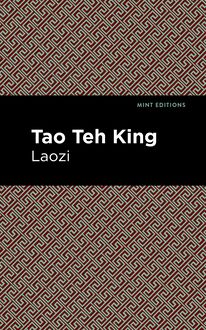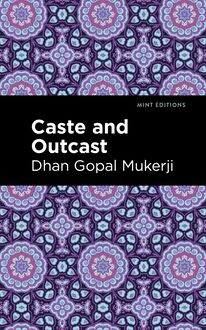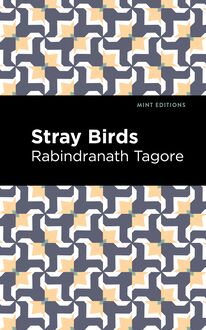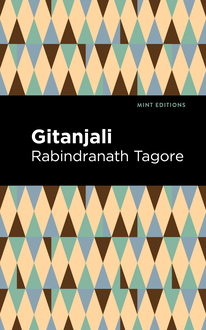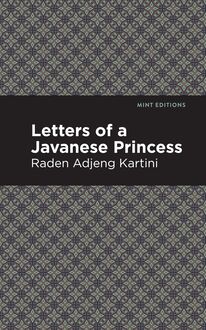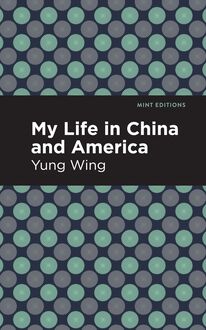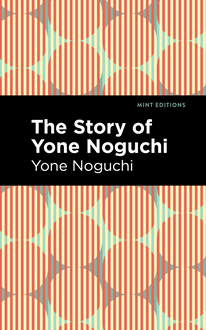-
 Univers
Univers
-
 Ebooks
Ebooks
-
 Livres audio
Livres audio
-
 Presse
Presse
-
 Podcasts
Podcasts
-
 BD
BD
-
 Documents
Documents
-
- Cours
- Révisions
- Ressources pédagogiques
- Sciences de l’éducation
- Manuels scolaires
- Langues
- Travaux de classe
- Annales de BEP
- Etudes supérieures
- Maternelle et primaire
- Fiches de lecture
- Orientation scolaire
- Méthodologie
- Corrigés de devoir
- Annales d’examens et concours
- Annales du bac
- Annales du brevet
- Rapports de stage
La lecture à portée de main
Vous pourrez modifier la taille du texte de cet ouvrage
Découvre YouScribe en t'inscrivant gratuitement
Je m'inscrisDécouvre YouScribe en t'inscrivant gratuitement
Je m'inscrisEn savoir plus
Vous pourrez modifier la taille du texte de cet ouvrage
En savoir plus

Description
A Child of Sorrow (1921) is a novel by Zoilo Galang. The novel, Galang’s debut, has been recognized as the first work of published Filipino fiction written in English. Modeled after popular nineteenth century romances written in Spanish and Tagalog, A Child of Sorrow is a classic coming of age tale engaged with themes of friendship, desire, and the loss of innocence. Simple and heartfelt, A Child of Sorrow remains a groundbreaking work of literature from an author who dedicated his career to education and the arts.
“In one of the rural and sequestered plains of Central Luzon, called the Fertile Valley, where the rice fields yielded the cup of joy to the industrious farmers, and where the harvest filled aplenty the barns of the poor, there lived simple, homely people, free from the rush and stir of city life.” In this idyllic setting, Lucio and Camilo discuss their plans for summer vacation. While Lucio, a dreamer “who painted brilliant lives on the nice canvas of memory,” wants to immerse himself in his collection of books, Camilo wants his friend to join him in the world beyond words. Together, they take a trip into town, hoping for adventure and camaraderie—and, if possible, to meet a young woman to fall in love with. Despite Camilo’s encouragement, however, Lucio longs to write poetry, to commune with the natural world with nothing but his own thoughts to keep him company. One bright morning, he runs into Rosa returning home with a pitcher of water. Before he can collect himself, Lucio confesses his undying love.
With a beautifully designed cover and professionally typeset manuscript, this edition of Zoilo Galang’s A Child of Sorrow is a classic work of Filipino literature reimagined for modern readers.
Sujets
Informations
| Publié par | Mint Editions |
| Date de parution | 11 mai 2021 |
| Nombre de lectures | 0 |
| EAN13 | 9781513298542 |
| Langue | English |
| Poids de l'ouvrage | 2 Mo |
Informations légales : prix de location à la page 0,0400€. Cette information est donnée uniquement à titre indicatif conformément à la législation en vigueur.
Extrait
A Child of Sorrow
Zoilo Galang
A Child of Sorrow was first published in 1921.
This edition published by Mint Editions 2021.
ISBN 9781513297040 | E-ISBN 9781513298542
Published by Mint Editions ®
minteditionbooks .com
Publishing Director: Jennifer Newens
Design & Production: Rachel Lopez Metzger
Project Manager: Micaela Clark
Typesetting: Westchester Publishing Services
C ONTENTS P REFACE I. V ACATION D AYS II. “T ILL D EATH D OTH U S P ART ” III. T HE T RANSFORMATION OF Y OUTH IV. C UP OF S ORROW V. T HE C ITY OF O PPORTUNITY VI. A T THE C ARNIVAL VII. B LASTED D REAMS OF H APPINESS
P REFACE
I wish to depict conditions as they exist and reflect them in my writings. In fact, “A Child of Sorrow” is a fragmentary page of real life, with a distinct morale and personality. I believe that personality transcends technique. There is no doubt but that we are all after truth and sincerity, and not dream and fantasy. I have woven a native story of a local color, imbued with modern and foreign elements,—as I want the best that is local and the best that is foreign harmoniously blended together to form what is known as our National Literature. However, I implore silence as to the real names of some of the personae of the novel, for they are still living, and probably you have once or twice met or talked with them. Silence, you know, is golden.
T HE A UTHOR
Manila,
December 16, 1921
I
V ACATION D AYS
Those who already awaited the coming of vacation days with keen anticipation could undoubtedly better understand and imagine what delights Lucio had in entertaining the thought of spending his vacation with his friend out in the province, just as soon as he had received his sheepskin diploma from the Provincial High School, and laid up his dust-covered books on the shelves in order to resume the happy role of youthful life.
In one of the rural and sequestered plains of Central Luzon, called the Fertile Valley, where the rice-fields yielded the cup of joy to the industrious farmers, and where the harvest filled aplenty the barns of the poor, there lived simple, homely people, free from the rush and stir of city life.
It was during one Friday morning in the month of April when the sampaguita began to open its buds to receive the soothing dew of the starry evening hour, which diffused fragrance and sweetness all around; it was when the dama-de-noche , that charming and most fragrant native flower, profusely embalmed the atmosphere at the magic touch of the night which gave it perfume and life,—it was in such springtime, merry and blithesome, when we found Lucio at home and his friend, Camilo, who, before the closing of school days, invited him to take his vacation at their town and then to their Hacienda.
Lucio and Camilo were school chums, members of a recently graduated High School class.
“Lay those worm-eaten tomes of romance and history, and come with me, and we will gleefully spend our vacation time in the bosom of the fields, and there could you realize real life and be in close touch with human nature,” nonchalantly said Camilo, smiling and looking him straight into his eyes as if wishing to convince him.
But meekly replied Lucio after meeting his eyes, and then returning his gaze upon his book again which he was reading:
“Why, confound it, man,—I’d rather remain here in this cell and read and drink of the wisdom of many great minds than linger in the fields uselessly.”
“Don’t you know that a sleeping dog catches no bone?”
“I do,” replied Lucio.
“Then, come!” Camilo took hold of the book and saw the title—“Sorrows and Happiness.” Then he remarked, after giving the book back: “Mine! So you got that old idea—where there is sorrow there is joy. Well—you may be right, your author may be right, but joy is not always for man—the world is cold—nectar is not always in women’s lips—it is everywhere—for it is the discerning eye which sees beauty everywhere.”
“You speak just eloquently,” said Lucio, and then put a thumb mark on the page he was reading and closed the book and laid it up carefully in his bookrack, and leaned on his chair and posed as if all attention to the nice chats of his true friend. “Well, what would you wish me to do—you bore?” said he smiling, in that peculiarly amiable and attractive manner of his.
“What I am driving at, dear fellow, is that—let us take our vacation in our town. Know that our town is not big, it is not grand—it is not beautiful, I wish to say,—but it is full of life. Even though it is void of gaiety, but to a man of your temperament, who is not after selfish things, such as youth is wont to enjoy, it is just full of sporting pleasure that will enchant you. Girls there are not in plenty, but you may find one to your liking. Beauty of nature is abundant and prosperity is flourishing in the veins of the fields and in the meadows green, and how the afternoon landscape will charm you—grand with all its splendor—just as the poets say; and make you forget your romances and come to real business. It is just the place where you can bring your book, lie down on the soft carpet-like grass and contemplate silently and thoughtfully on the bounties of God to man. There shall you find a truly human paradise, where there is peace, solitude and poetry in every nook of our farm, for the terraces are colored with the verdure of vegetation and the sweetness of the wild flowers… And—oh, mine, I cannot find words and really picture all to you as you oftentimes picture to me the beauties you see in life and in fiction! …” And he waved his hands high up in the air as if lost in the ecstasy and flight of his imagery.
“Well, that sounds something… I’ll tell father and tomorrow we shall know.”
“Good! I bet you’ll love it more when you behold it. Remember it, Lucio, and please keep in mind that there are many good things in store for you there, and it will widen your mental sphere on human nature—the more useful to you because you are inclined to literary pursuits, while I am more after material things than ideal ones.”
With a sweep of his hands, he departed, saying:
“Good day.”
Lucio was left alone.
He sighed and then gazed through the window of his room by the left side and listlessly stood looking there for about five minutes without moving—his mind wandering and his heart beating high with the strange hopes of seeing the real picture portrayed by his friend there in their hacienda, full of singing birds and fragrant flowers of the valley.
What things are more attractive and pleasing to youth than colored life, easy and beautiful life—full of rosy dreams and sweet imaginings!
Truly youth is the time when the mind loves to dwell in painting air castles in a maze of wonders,—picturing himself surrounded by greatness and honor—and thinking of a nymph or a muse to grace the whole existence of his life and thus make him happy and glorious, from thence and forever.
Lucio was one of those who painted brilliant lives on the nice canvas of memory, and one of those who wanted to make true at the same time what he sketched on canvas as well as in words. At heart he was romantic, but in soul he was ambitious. For he thought of life, even when as a child, seriously, for ever since he knew the value of time, he kept on pegging day in and day out in reading whatever book came into his hands, and thus at this time of writing he had been able to gather a lot of invaluable knowledge—science, art, and literature.
Sometimes he was only fond of philosophizing and his mind was full of lovely things, yet he did not wonder why he did not see those in real life even though he so often saw them in print. Yes, for he very well knew that sometimes there appeared the irony of fate.
That same night he went over to see his father working in their small farm. He told him that he was only desirous of accompanying his friend for an indefinite length of time in spending and enjoying his vacation days in a certain town nearby, about two hours of carromata riding.
The father, who was kind and obliging, consented and added that he hoped he would make the most of it, for he was looking up to him for everything sometime in later life as he was then fast growing old.
That night Lucio silently reviewed the scenes and labors of his past childhood, for now he was budding forth into the state of manhood. He also recalled to mind the words of his father, which fell into his soul like manna from heaven.
The next morning just shortly after breakfast time, and this time in the provinces is usually at half past seven in the morning, Lucio went away to see his friend Camilo. He found him still sleeping in his uncle’s house.
When Lucio showed up, Camilo awoke; but before taking his fill, he greeted his friend and said:
“Good morning, Lucio.” He took hold of both his hands, and looked him up scrutinizingly. He swung their hands together up and down and further added:
“What now! Are you going with me to our town?”
“Oh, yes. I will. My father told me so. He gave me his consent. So I am but glad to go with you.”
“That is the good boy! For you will not, I am sure, repent in going with me to town. Fine, then, be seated, my dear old boy,” said Camilo joyfully. “Now let us prepare ourselves for the trip today or tomorrow as you like.”
“Yes. But I would better go home and prepare my trunk… Say, how long should we stay there, by the way?”
“Well, as long as you like—say a month or so—it is up to you.”
Camilo knitted his brow and then continued:
“I’ll leave up things to your discretion. For that depends upon what you see there—your impressions and personal likings. I reserve that matter
-
 Univers
Univers
-
 Ebooks
Ebooks
-
 Livres audio
Livres audio
-
 Presse
Presse
-
 Podcasts
Podcasts
-
 BD
BD
-
 Documents
Documents
-
Jeunesse
-
Littérature
-
Ressources professionnelles
-
Santé et bien-être
-
Savoirs
-
Education
-
Loisirs et hobbies
-
Art, musique et cinéma
-
Actualité et débat de société
-
Jeunesse
-
Littérature
-
Ressources professionnelles
-
Santé et bien-être
-
Savoirs
-
Education
-
Loisirs et hobbies
-
Art, musique et cinéma
-
Actualité et débat de société
-
Actualités
-
Lifestyle
-
Presse jeunesse
-
Presse professionnelle
-
Pratique
-
Presse sportive
-
Presse internationale
-
Culture & Médias
-
Action et Aventures
-
Science-fiction et Fantasy
-
Société
-
Jeunesse
-
Littérature
-
Ressources professionnelles
-
Santé et bien-être
-
Savoirs
-
Education
-
Loisirs et hobbies
-
Art, musique et cinéma
-
Actualité et débat de société
- Cours
- Révisions
- Ressources pédagogiques
- Sciences de l’éducation
- Manuels scolaires
- Langues
- Travaux de classe
- Annales de BEP
- Etudes supérieures
- Maternelle et primaire
- Fiches de lecture
- Orientation scolaire
- Méthodologie
- Corrigés de devoir
- Annales d’examens et concours
- Annales du bac
- Annales du brevet
- Rapports de stage

